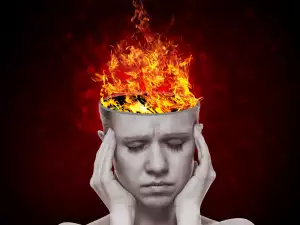On March 14, the world celebrates World Sleep Day, with the goal of all initiatives on this day being to remind people how important a quality sleep is to health. World Sleep Day was first commemorated in 2002 and since then has been an annual event.
In the past sleep was described as a state of the human body but over the years scientific research has proven that it's not just a state but an entire process, consisting of various phases.
Each phase of sleep plays an important and crucial role for the body's proper rest.
In ancient times, dreams were a fundamental part when it came to making important decisions. They were thought to be messages from the gods and military leaders had an entire group of dream interpreters who deciphered the symbols in his dreams.
Every human being dreams, regardless if they are suffering from a severe psychological disorder or not. People who say they don't dream mean that they don't remember their dreams.

5 min. after we wake up we forget about 50% of our dream. After another 10 min. we won't be able to remember 90% of what was dreamt.
Every one of the individuals that appears in our dreams is one we've seen in real life. Our imagination is not capable of coming up with new personas while we dream.
38% of people say they've had a prophetic dream at least once in their life, while 70% believe that the messages in their dreams foretell the future.
Disturbance is the most common emotion in our dreams and it is more likely for us to remember our dream the next day if it was a nightmare.
The documented record for the longest time a human has gone without sleep is 18 days, 21 hours and 40 minutes, with the individual who achieved it having suffered frequent hallucinations, blurry vision, bouts of paranoia and problems speaking and concentrating shortly after.













